Wonder Woods is a deduction game of collecting different mushroom types that all score possibly a different number of points. As the game continues, you might gain more information to try to deduce if a certain type of mushroom is worth more or less points than others. The game is designed by Eli Thomas Wolf and published by Blue Orange Games (Wilson & Shep, Blue Lagoon), is for 2-5 players, and plays in about 30 minutes.
What’s In The Box?
- 35 Wooden baskets in 5 colors
- 56 Wooden Mushrooms (14 morels, 14 chanterelles, 14 porcini, 14 parasol mushrooms)
- 1 First player token (forest)
- 4 Mushroom Patch boards (one per variety)
- 16 Information cards worth 1, 3, 5, and 7 for each mushroom variety
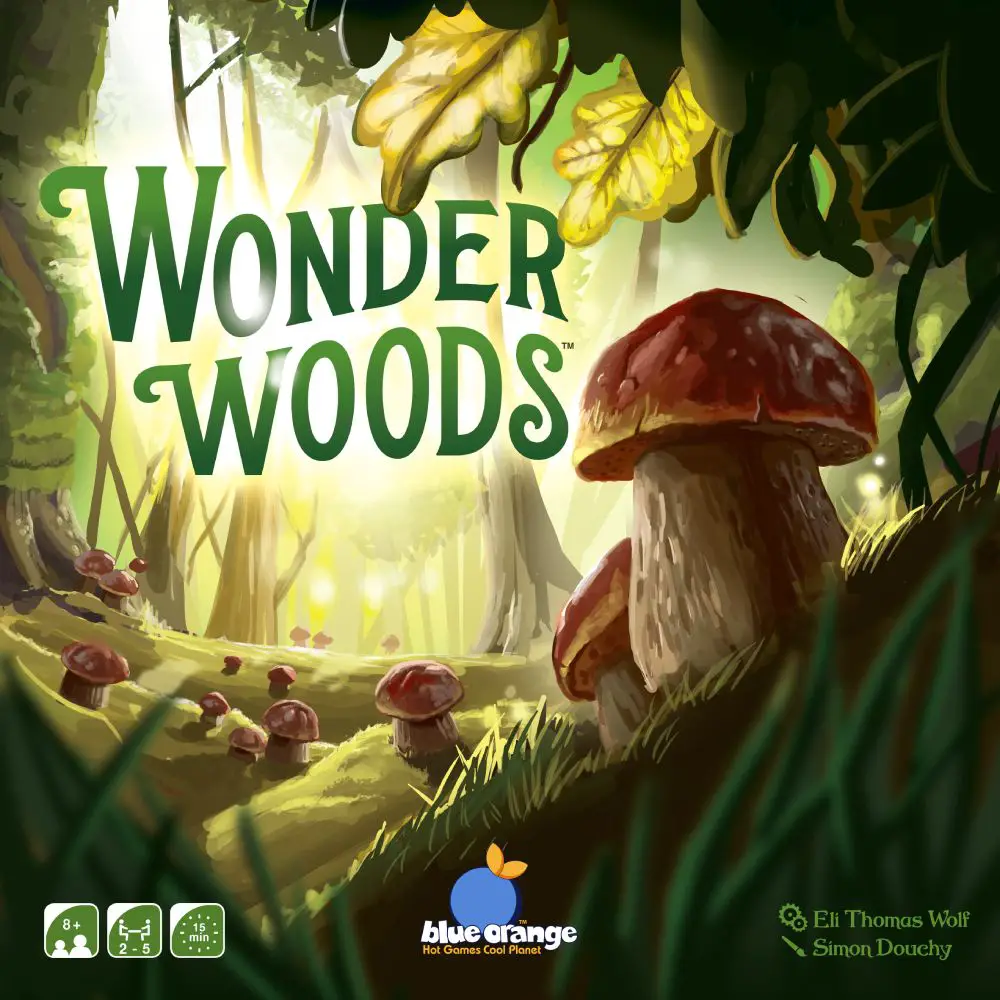
How’s it Play?
Wonder Woods is all about using your baskets to pick specific mushrooms that are each worth 1, 3, 5, or 7 points each. But the twist is, you aren’t exactly sure the point value of each. Each player has cards that give them limited information on what point value is not assigned to that variety of mushroom, and possibly can gain more information as the game goes on. At the end of the game, the cards listing each mushroom variety’s true point values are flipped over, and player count up their points. The player who has the most points, possibly from deducing which mushroom type is worth the most points, wins the game.
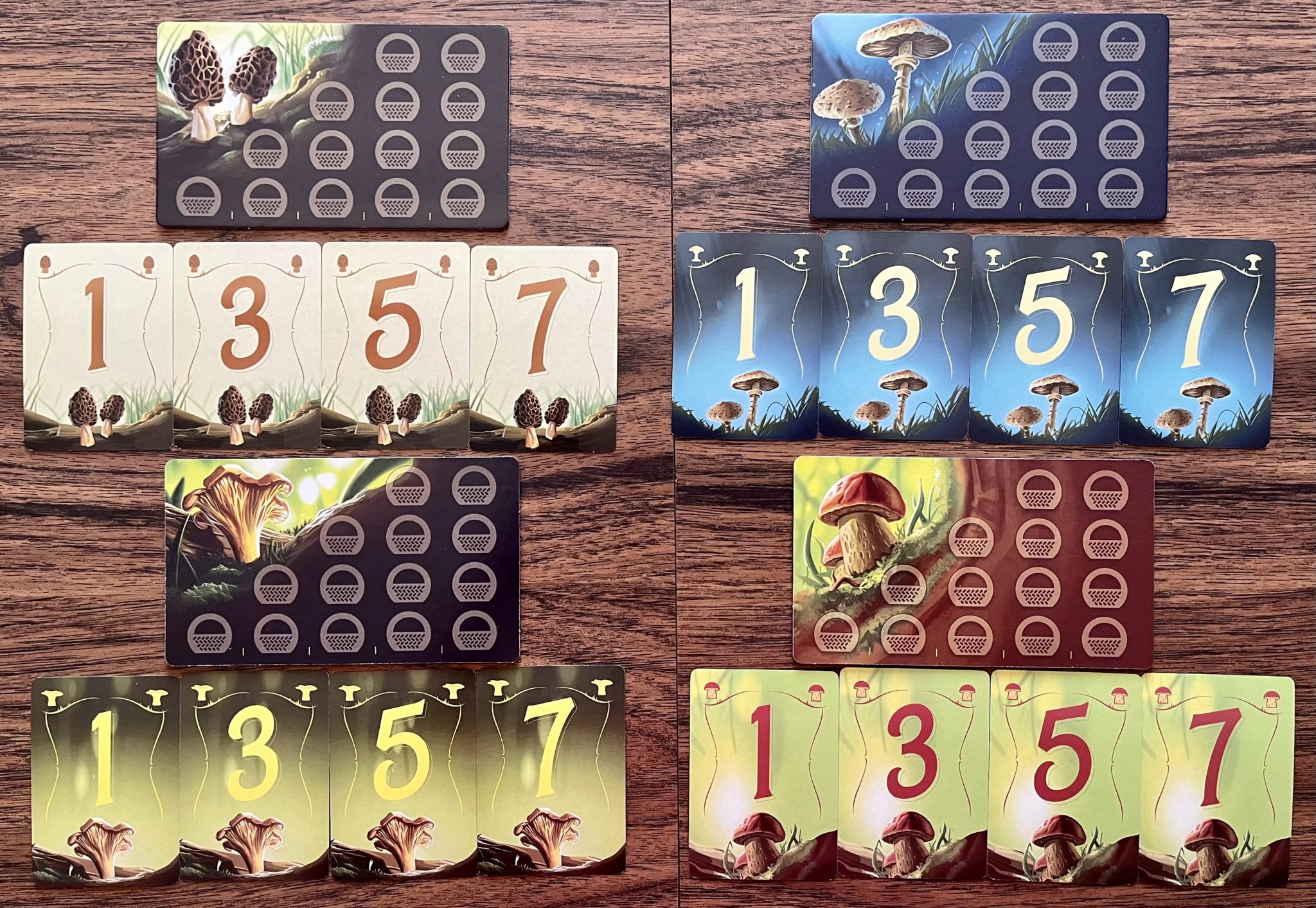
So how exactly does Wonder Woods work? Well depending on how many players are in the game will determine the number of available mushrooms in the game for each variety, as well as the number of starting cards. Each variety has a card with a 1, 3, 5, or 7. Randomly, one was put under each mushroom board, which indicates the true value. Then, all the players have certain cards that give them information as to a specific type and a number of points that that variety is not. So if you have a 7 morel card, you know the morel is not going to be worth 7 points, but could still be worth 5, 3, or 1. Likewise, if you have the 1 card, you know its not worth just 1 point, but rather 3, 5, or 7 points.
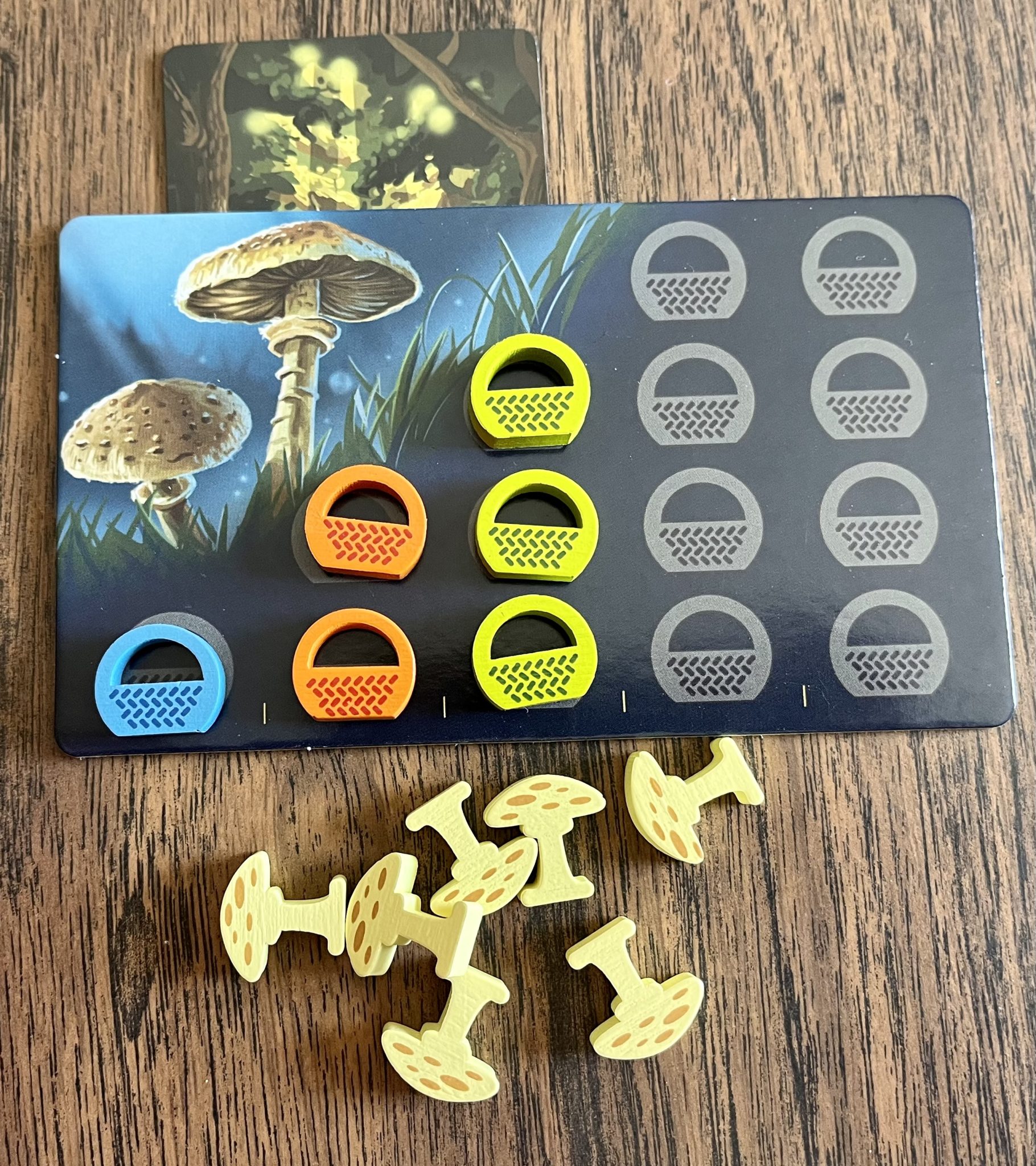
Obviously you want to get the mushrooms worth the most points, but more mushrooms is also better, as they score you more points. 2 mushrooms worth 3 points each is better than one mushroom that scores 5 points.
When placing your baskets, you have to place them to fill the entire column, starting from the left. This starts with just one, but if someone fills that spot with their basket, you need to place 2 of your baskets in the next column, and then 3, then 4. So, part of the game is determining how to best use your baskets to hopefully score the most points.
Remember, each player has a different amount of limited knowledge as to what each mushroom is not worth, so seeing what others do might help you. But, they also could just be guessing and leading you astray if they are also mistaken.
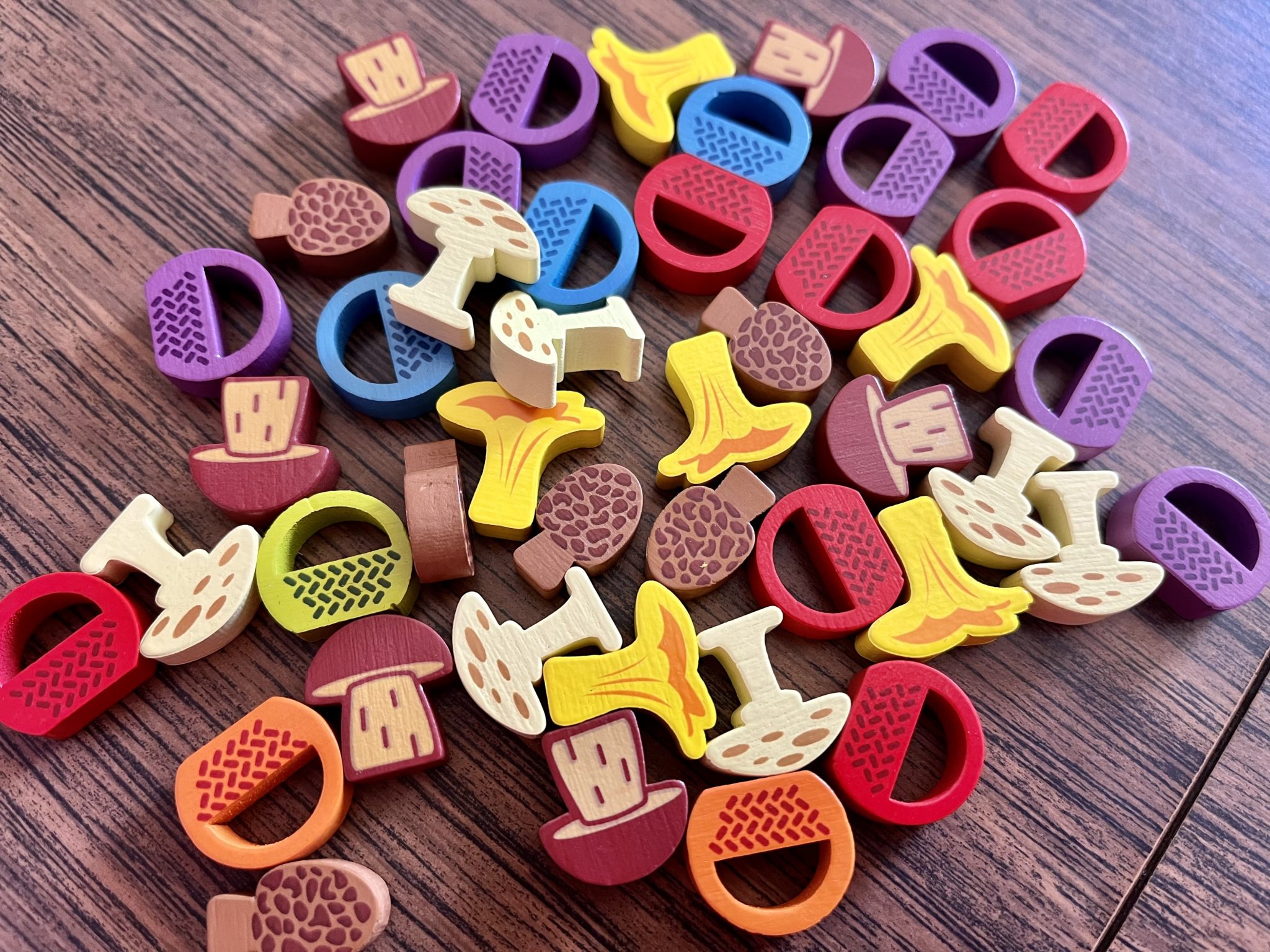
After all players have placed all their baskets to pick up mushrooms, they gather them back and have the choice to reveal one of their cards to all the players to gain one extra basket, or to not reveal information to others, and therefore not gain another basket. The game continues until at least 2 patches have no more mushrooms left. Players finished the phase and Wonder Woods ends.
The cards placed under each mushroom board are then revealed, and players count up their points from the points shown on those cards. The player with the most points wins Wonder Woods.
The Verdict
This is just an absolute masterpiece of a game to play with kids. I was initially worried my kids, aged 7 and 5, wouldn’t understand that the cards they have are not the points of each mushroom. I kept trying to explain to them as we played that we don’t know how many points each type is worth, we just have clues as to how many points it is not worth. Surprisingly, they figured it out during the first game of playing it. They were so excited they found the 7 point mushroom, and kept taking them while I was using my time to gain the 1 point mushrooms.
The design is a very solid, simple one that uses an interest in deduction and enjoyment of gathering mushrooms to make the game more and more exciting as it goes on. Each player knows a portion of the truth, but no one knows it all, and that makes the game fun, because you know the others don’t know what you know.
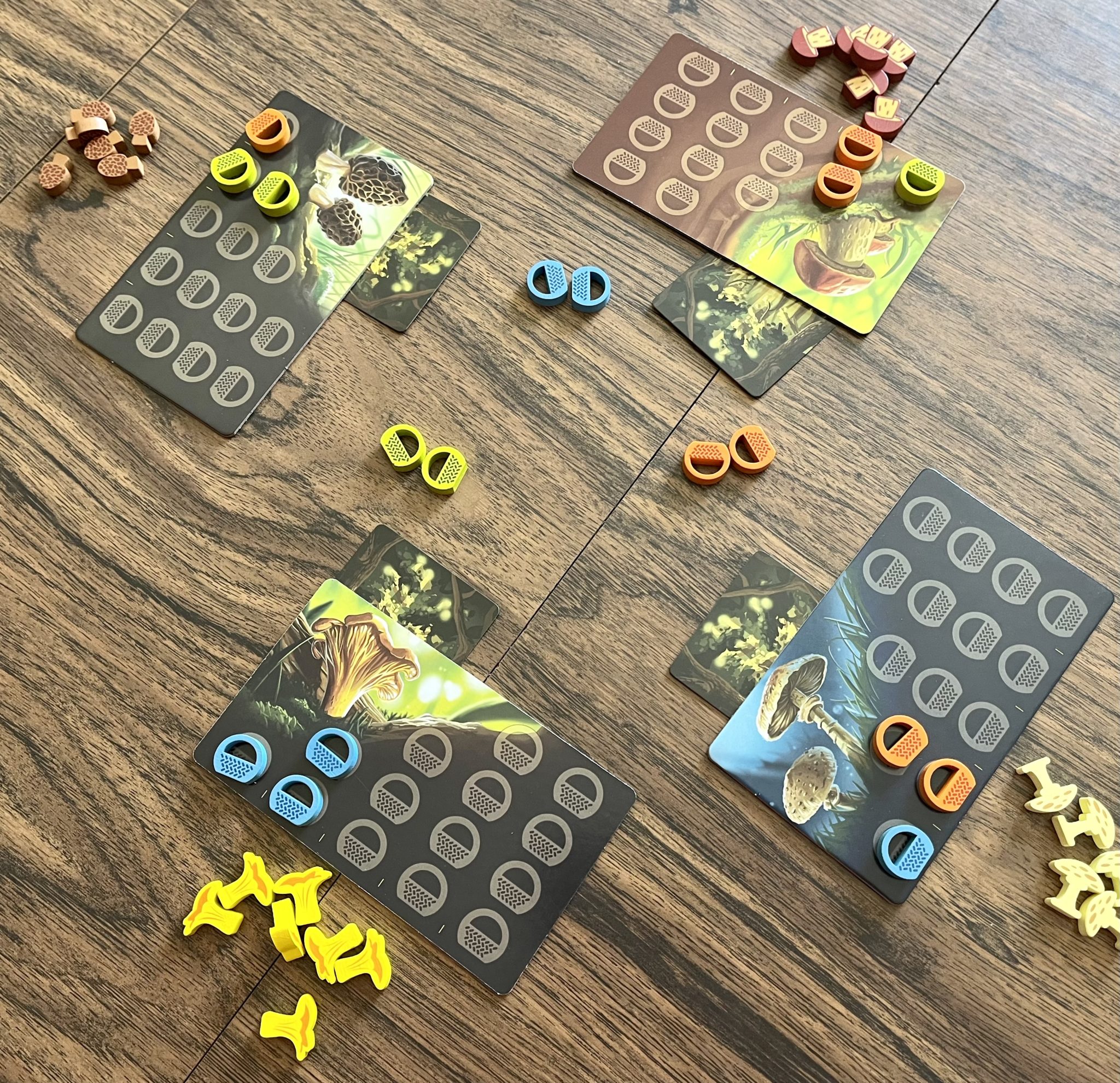
Players can lean on other players, watching what mushrooms they go for, but they also don’t have all of the information, so they could be wrong and be going after a mushroom worth less than another. So, players need to use their information and then deduce what other players are doing to plan what type of mushrooms they want to go for.
The one problem I had with Wonder Woods was if someone got a lucky hand and was dealt the 1, 3, and 5 card of the same mushroom, they almost always won. Having this information locked in a lot more 7 point mushrooms than others who didn’t have any better information from their cards. If there was a way to make sure a player could only have a max of 2 of the same type of cards that would help this problem, but I think it would add others and make it more complicated than it would need to be.
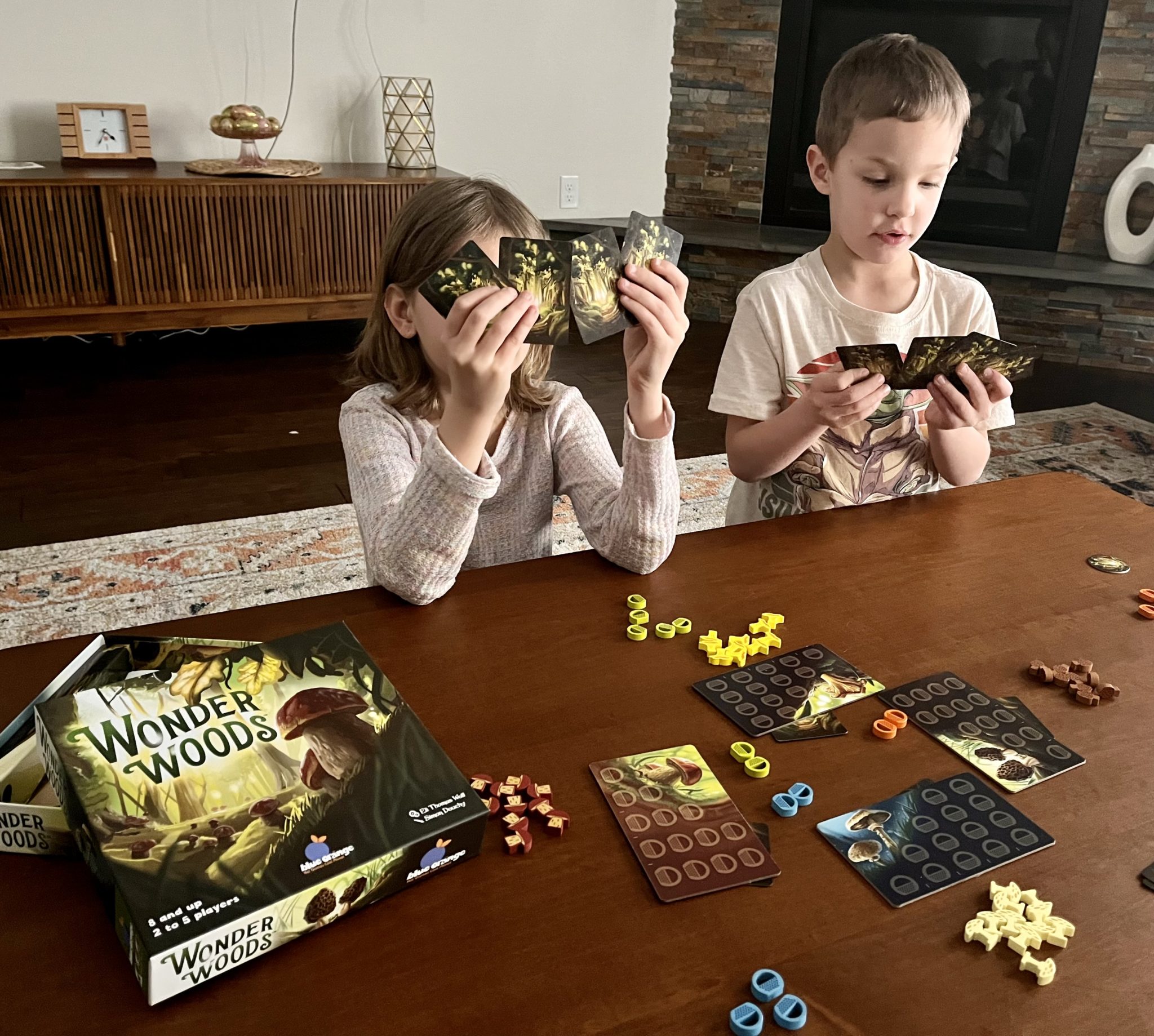
Lastly, the mechanic of placing an increased number of baskets to take a mushroom is just a great design. You need to pay more for a favorite type of mushroom, but then you also need to be efficient in how you use your baskets since you don’t want to end your turn with leftover baskets you cannot use because you don’t have enough to fill in a column.
The components were a huge surprise for quality. The baskets and mushrooms are all wooden, which are really nice to use instead of tokens. The mushroom boards are thick enough for their purpose, and the cards are standard cards. Overall, I have no problems or concerns with the components in Wonder Woods at all.
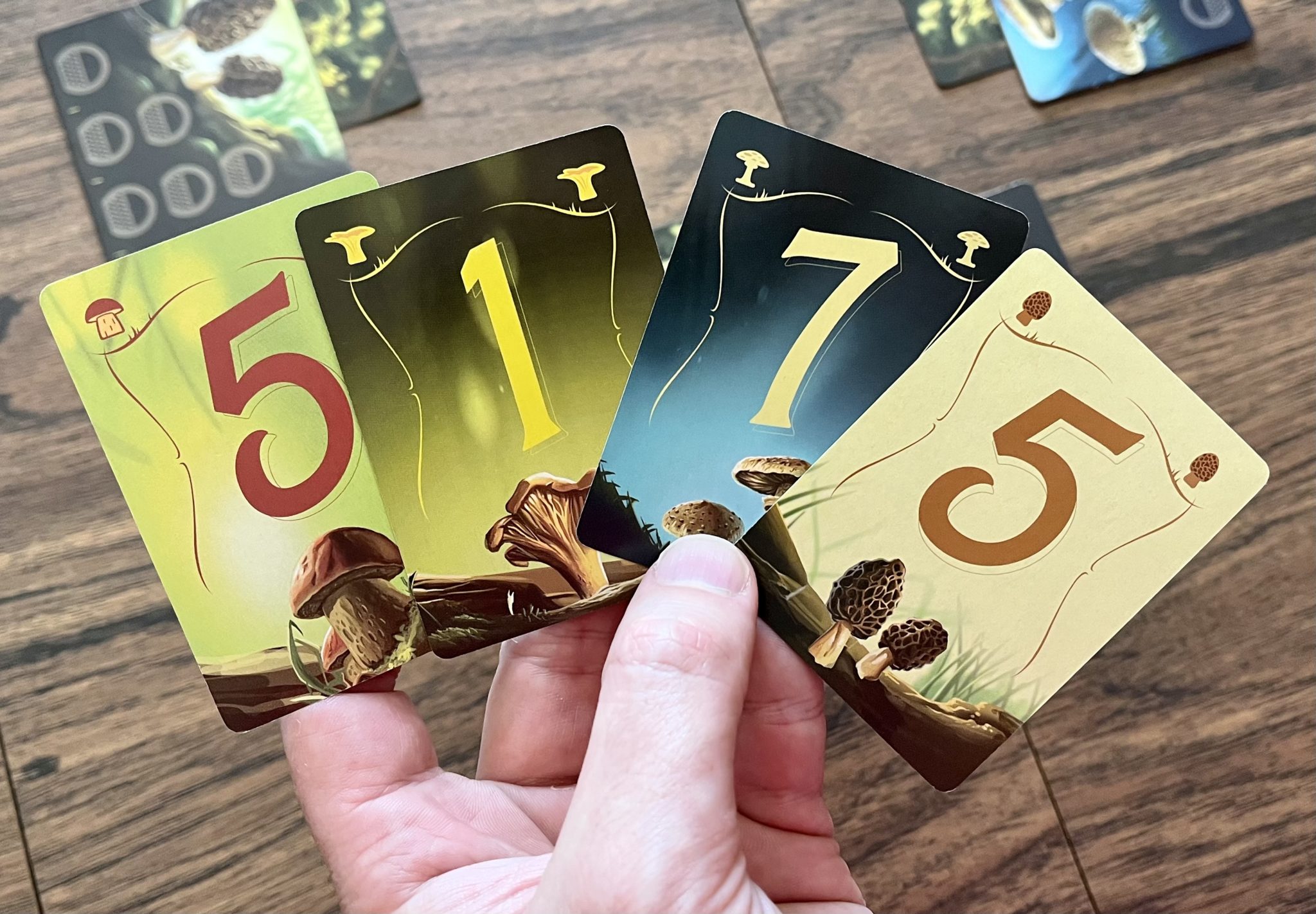
We really enjoyed Wonder Woods, both of the kids wanted to play it over and over again, and they were really excited when they figured out a mushroom was worth 7 points and worked to get as many as they could. Depending on the game, it can be luck or some great deduction that determines the winner.
You can grab a copy of Wonder Woods at your FLGS, at an MSRP of $24.99!
Images and review copy via Blue Orange Games
Have strong thoughts about this piece you need to share? Or maybe there’s something else on your mind you’re wanting to talk about with fellow Fandomentals? Head on over to our Community server to join in the conversation!

